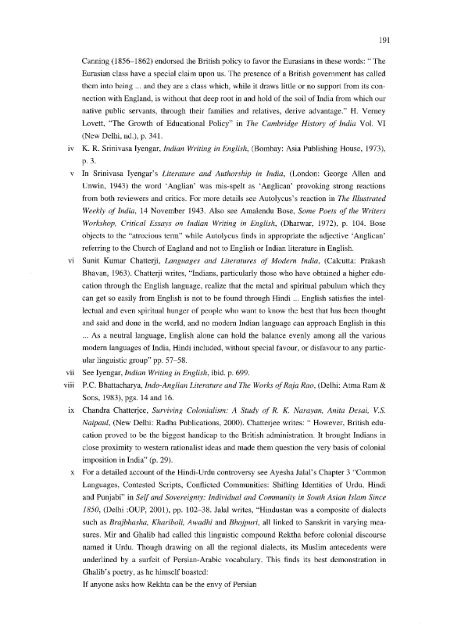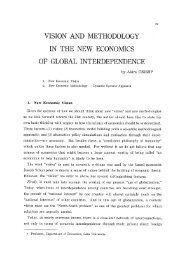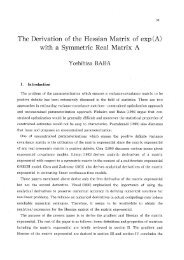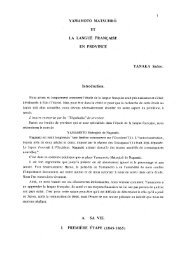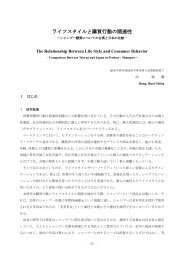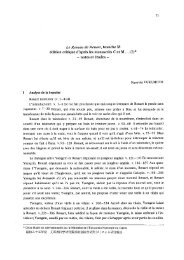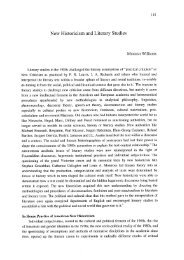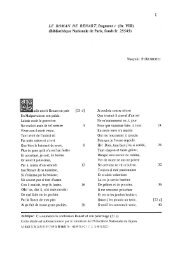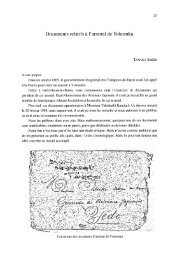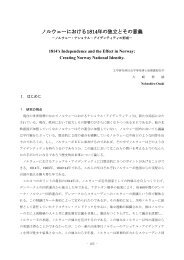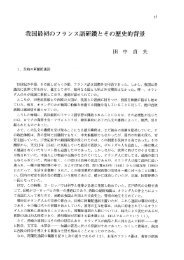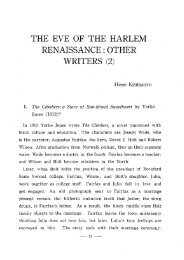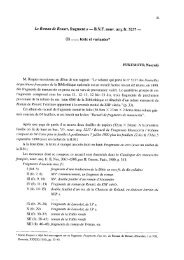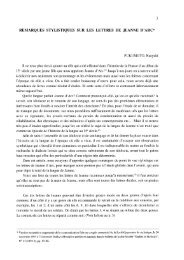Indian Writing in English 1794-2004 - Soka University Repository
Indian Writing in English 1794-2004 - Soka University Repository
Indian Writing in English 1794-2004 - Soka University Repository
You also want an ePaper? Increase the reach of your titles
YUMPU automatically turns print PDFs into web optimized ePapers that Google loves.
Cann<strong>in</strong>g (1856-1862) endorsed the British policy to favor the Eurasians <strong>in</strong> these words: "The<br />
Eurasian class have a special claim upon us. The presence of a British government has called<br />
them <strong>in</strong>to be<strong>in</strong>g ... and they are a class which, while it draws little or no support from its con-<br />
nection with England, is without that deep root <strong>in</strong> and hold of the soil of India from which our<br />
native public servants, through their families and relatives, derive advantage." H. Verney<br />
Lovett, "The Growth of Educational Policy" <strong>in</strong> The Cambridge History of India Vol. VI<br />
(New Delhi, nd.), p. 341.<br />
iv K. R. Sr<strong>in</strong>ivasa Iyengar, <strong>Indian</strong> <strong>Writ<strong>in</strong>g</strong> <strong>in</strong> <strong>English</strong>, (Bombay: Asia Publish<strong>in</strong>g House, 1973),<br />
P- 3.<br />
v In Sr<strong>in</strong>ivasa Iyengar's Literature and Authorship <strong>in</strong> India, (London: George Allen and<br />
Unw<strong>in</strong>, 1943) the word `Anglian' was mis-spelt as `Anglican' provok<strong>in</strong>g strong reactions<br />
from both reviewers and critics. For more details see Autolycus's reaction <strong>in</strong> The Illustrated<br />
Weekly of India, 14 November 1943. Also see Amalendu Bose, Some Poets of the Writers<br />
Workshop, Critical Essays on <strong>Indian</strong> <strong>Writ<strong>in</strong>g</strong> <strong>in</strong> <strong>English</strong>, (Dharwar, 1972), p. 104. Bose<br />
objects to the "atrocious term" while Autolycus f<strong>in</strong>ds <strong>in</strong> appropriate the adjective `Anglican'<br />
referr<strong>in</strong>g to the Church of England and not to <strong>English</strong> or <strong>Indian</strong> literature <strong>in</strong> <strong>English</strong>.<br />
vi Sunit Kumar Chatterji, Languages and Literatures of Modern India, (Calcutta: Prakash<br />
Bhavan, 1963). Chatterji writes, "<strong>Indian</strong>s, particularly those who have obta<strong>in</strong>ed a higher edu-<br />
cation through the <strong>English</strong> language, realize that the metal and spiritual pabulum which they<br />
can get so easily from <strong>English</strong> is not to be found through H<strong>in</strong>di ... <strong>English</strong> satisfies the <strong>in</strong>tel-<br />
lectual and even spiritual hunger of people who want to know the best that has been thought<br />
and said and done <strong>in</strong> the world, and no modern <strong>Indian</strong> language can approach <strong>English</strong> <strong>in</strong> this<br />
... As a neutral language, <strong>English</strong> alone can hold the balance evenly among all the various<br />
modern languages of India, H<strong>in</strong>di <strong>in</strong>cluded, without special favour, or disfavour to any partic-<br />
ular l<strong>in</strong>guistic group" pp. 57-58.<br />
vii See Iyengar, <strong>Indian</strong> <strong>Writ<strong>in</strong>g</strong> <strong>in</strong> <strong>English</strong>, ibid. p. 699.<br />
viii P.C. Bhattacharya, Indo-Anglian Literature and The Works of Raja Rao, (Delhi: Atma Ram &<br />
Sons, 1983), pgs. 14 and 16.<br />
ix Chandra Chatterjee, Surviv<strong>in</strong>g Colonialism: A Study of R. K. Narayan, Anita Desai, V.S.<br />
Naipaul, (New Delhi: Radha Publications, 2000). Chatterjee writes: " However, British edu-<br />
cation proved to be the biggest handicap to the British adm<strong>in</strong>istration. It brought <strong>Indian</strong>s <strong>in</strong><br />
close proximity to western rationalist ideas and made them question the very basis of colonial<br />
imposition <strong>in</strong> India" (p. 29).<br />
x For a detailed account of the H<strong>in</strong>di-Urdu controversy see Ayesha Jalal's Chapter 3 "Common<br />
Languages, Contested Scripts, Conflicted Communities: Shift<strong>in</strong>g Identities of Urdu, H<strong>in</strong>di<br />
and Punjabi" <strong>in</strong> Self and Sovereignty: Individual and Community <strong>in</strong> South Asian Islam S<strong>in</strong>ce<br />
1850, (Delhi :OUP, 2001), pp. 102-38. Jalal writes, "H<strong>in</strong>dustan was a composite of dialects<br />
such as Brajbhasha, Khariboli, Awadhi and Bhojpuri, all l<strong>in</strong>ked to Sanskrit <strong>in</strong> vary<strong>in</strong>g mea-<br />
sures. Mir and Ghalib had called this l<strong>in</strong>guistic compound Rektha before colonial discourse<br />
named it Urdu. Though draw<strong>in</strong>g on all the regional dialects, its Muslim antecedents were<br />
underl<strong>in</strong>ed by a surfeit of Persian-Arabic vocabulary. This f<strong>in</strong>ds its best demonstration <strong>in</strong><br />
Ghalib's poetry, as he himself boasted:<br />
If anyone asks how Rekhta can be the envy of Persian<br />
191


